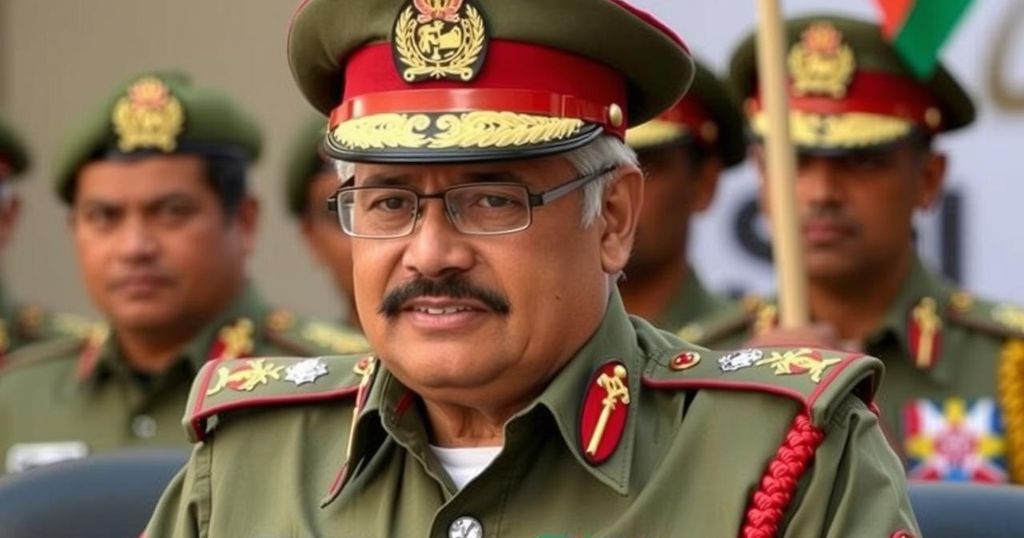Bangladesh Army Chief Emphasizes Balanced Relations with India
Bangladesh Army Chief, General Waker-Uz-Zaman, affirmed that Bangladesh will not act against India’s strategic interests while stressing that India must also respect Bangladesh’s concerns. He described the relationship as a ‘give-and-take’ and highlighted the importance of mutual benefit. The remarks come amid heightened tensions following Bangladesh’s political changes and issues surrounding regional stability and security.
In a recent interview with Prothom Alo, Bangladesh Army Chief General Waker-Uz-Zaman assured that Bangladesh would not undertake any actions detrimental to India’s strategic interests. However, he underscored that this commitment hinges on India’s concurrent respect for Bangladesh’s interests, including equitable water resource allocations. Describing the India-Bangladesh relationship as fundamentally a “give-and-take relationship,” General Waker stated that mutual respect and fairness should govern interactions between both nations. He highlighted the importance of stability, especially regarding border security and the Chittagong Hill Tracts, while reiterating the expectation of reciprocity from India in maintaining equitable bilateral relations.
Further addressing security concerns, General Waker expressed that Bangladesh’s role in ensuring stability in India’s Northeast is significant, particularly as India has historically depended on support from the previous Bangladeshi government. However, he noted the necessity for India to respect Bangladesh’s interests in return, asserting, “At the same time, we will expect that our neighbour does nothing that is contrary to our interests.” This statement reflects Bangladesh’s desire for a balanced partnership.
Amid geopolitical shifts, including a recent policy change regarding visa requirements for Pakistani citizens, there are growing concerns about security implications for India’s Northeast region. He pointed out that while there had formerly been collaboration in countering militancy, political transformations in Bangladesh pose potential challenges. Furthermore, General Waker acknowledged the importance of China in Bangladesh’s development strategy, emphasizing, “China is a partner in our development. They have investment in Bangladesh. So China is very important to us.”
Overall, the remarks made by General Waker-Uz-Zaman encapsulate the delicate balance required for fostering enduring India-Bangladesh relations, hinging on shared interests, mutual respect, and strategic cooperation amid evolving political landscapes.
The remarks by General Waker-Uz-Zaman come in the context of increasingly complex geopolitical relations in South Asia, particularly following the recent political turmoil in Bangladesh that led to the ousting of former Prime Minister Sheikh Hasina. These changes have raised alarms in India regarding the potential for extremist groups to regain influence in Bangladesh and disrupt regional stability. The longstanding dynamics between Bangladesh and India have included cooperation on security and development, with emphasis now on mutual respect amid shifting political allegiances.
In conclusion, General Waker-Uz-Zaman’s statements shed light on the critical nature of India-Bangladesh relations, emphasizing a framework of fairness and reciprocal respect. He insisted that while Bangladesh is committed to safeguarding India’s strategic interests, India must also honor Bangladesh’s sovereignty and address its legitimate concerns. As both nations navigate their relationship, the balance between cooperation and mutual interests will be pivotal in maintaining regional stability.
Original Source: www.business-standard.com








Post Comment